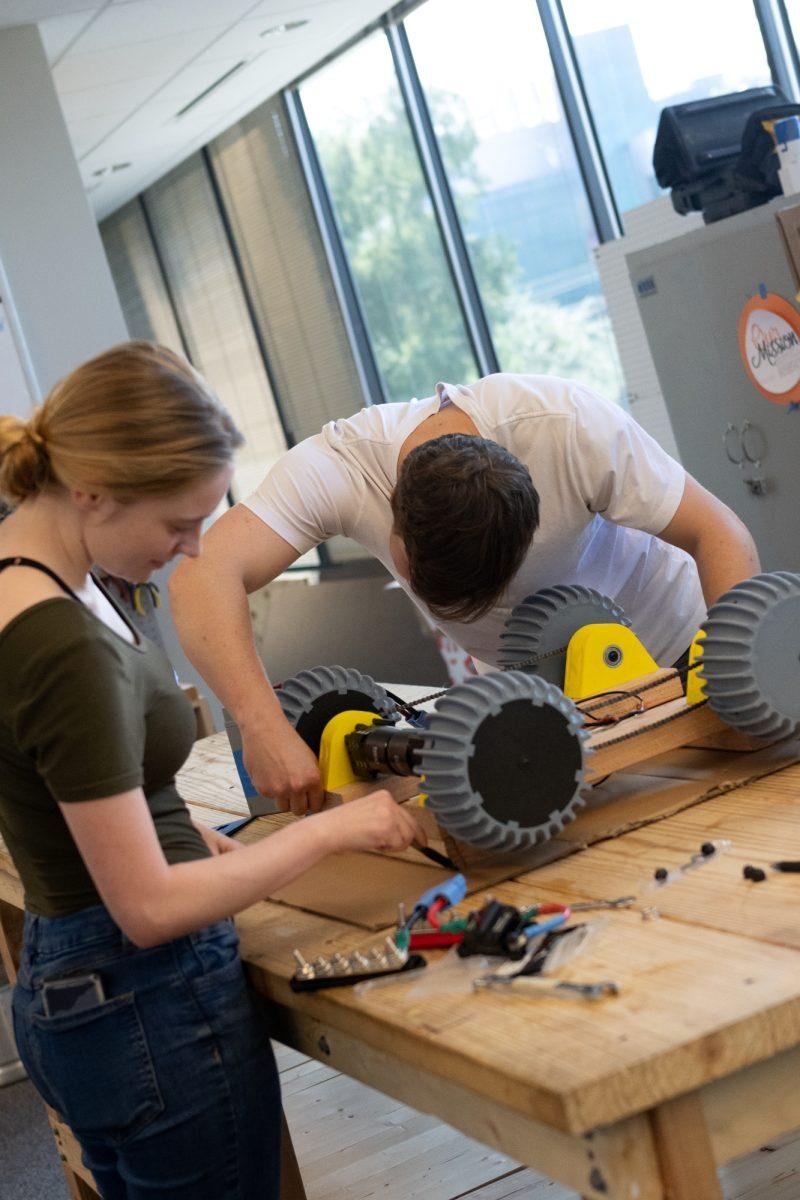Mar Ologban | Mercury Staff
The Fortnite Championship Series, commonly known as FNCS, was held at Dickies Arena in Fort Worth the weekend of Sept. 7 and 8. One hundred of the world’s best players from around the globe arrived at the arena to compete for $2 million in total prizes in the biggest competitive Fortnite gaming event this year, with multiple major qualifying tournaments leading up to the weekend.
The tournament was set up so that the 12 matches were split up between the two days with six matches per day. The number of points collected over the two days would determine each team’s rankings, with placement and amount of eliminations determining total points earned. Two players made up each team.
On day one of the tournament, minor hiccups resulted in multiple back to back delays, but once the first game started, the stadium was hyped up. Spectators overlooked the 100 players on the stage and a gigantic screen that showcased the main gameplay from different perspectives, clamoring with excitement over each kill and elimination.
While the tournament was played in Fortnite, competitive play is different from the regular Battle Royale a casual player may know, with different game mechanics such as “Storm Surge,” a mechanic that activates if there are too many people in the server and damages a player’s health if they have played passively by not amassing kills. Even with Storm Surge, many competitors still played less aggressively by not picking as many fights and sneaking up to third-party fights instead of instigating their own. Team Liquid’s players from Brazil — Felipe Alves, whose screen name is Persa; and Edcarlos Santos, screen name EdRoadToGlory — executed this strategy on the first day of competition.
“[I] started playing very safe, but [I] realized that it was not working,” Alves said. “So, after game three, [I] started to get a little bit more aggressive.”
After game three, the duo began picking up more points after halftime. Competitors played six games for around three hours with a short 30-minute break in between, but it didn’t hurt Alves’ mental fortitude or motivation.
“I really don’t think about it like being motivated,” Alves said. “Once we sit down, you’re just trying to get in the flow zone and trying to get things done.”
Day one wrapped up with team EXD — composed of Miguel Moreno, screen name pollofn, and Peter Kata, screen name Peterbot — being number one on the leaderboard after winning multiple games. They had a 100-point lead over the second-place team, which continued to widen on the second day.
Throughout the two days of competition and 12 matches, Kata and Moreno, who had been a duo together for the qualifiers, won the most matches out of any other duo, an impressive feat. After winning match 12, they were crowned the winners of the FNCS with massive fanfare. Cheers could be heard throughout the entire stadium as fans jumped out of their seats at the final kill and the players’ families were shown on screen in awe. Kata said he felt confident about their win since early in the tournament.
“I knew we were gonna win after day one,” Kata said. “We fell off a little bit first game in the zones and we came back in games three and five.”
The winners were kept extremely busy, between a winner’s press conference and video filming with Epic Games, but they took the newfound attention in stride. While Kata said he and Moreno were going to win after the first day, they went in as underdogs and came out as champions.
“It’s nothing new,” Kata said. “We should’ve been in [talks of being the greatest of all time] before this.”
Though Kata and Moreno have won the duo-style FNCS this year, next season’s FNCS will have a trio format, something that will pose a unique challenge to the competitive Fortnite scene. Next year’s prize pool will be $8 million and reintroduce previous mechanics to make the season more exciting.





